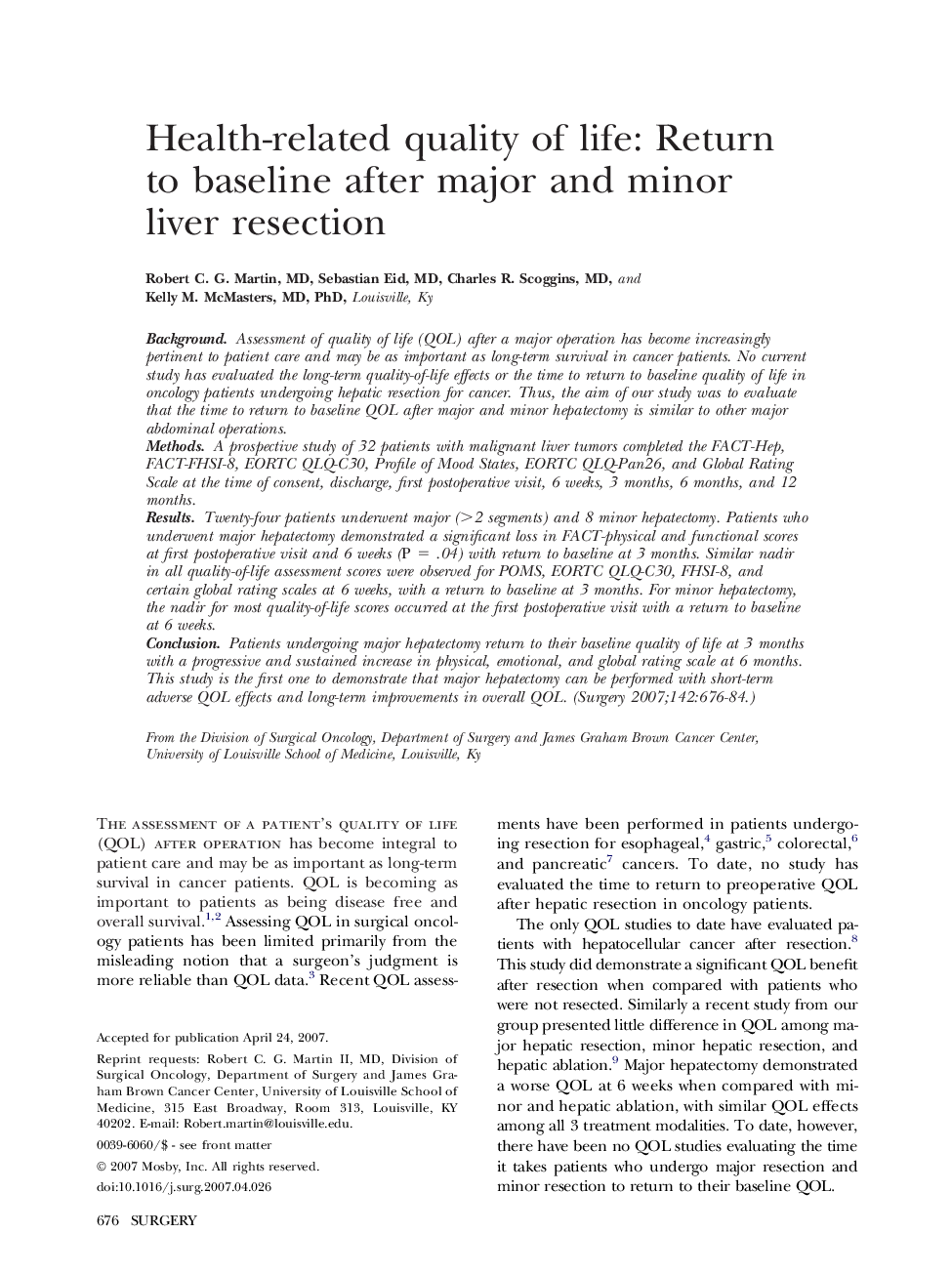| Article ID | Journal | Published Year | Pages | File Type |
|---|---|---|---|---|
| 4309562 | Surgery | 2007 | 9 Pages |
BackgroundAssessment of quality of life (QOL) after a major operation has become increasingly pertinent to patient care and may be as important as long-term survival in cancer patients. No current study has evaluated the long-term quality-of-life effects or the time to return to baseline quality of life in oncology patients undergoing hepatic resection for cancer. Thus, the aim of our study was to evaluate that the time to return to baseline QOL after major and minor hepatectomy is similar to other major abdominal operations.MethodsA prospective study of 32 patients with malignant liver tumors completed the FACT-Hep, FACT-FHSI-8, EORTC QLQ-C30, Profile of Mood States, EORTC QLQ-Pan26, and Global Rating Scale at the time of consent, discharge, first postoperative visit, 6 weeks, 3 months, 6 months, and 12 months.ResultsTwenty-four patients underwent major (>2 segments) and 8 minor hepatectomy. Patients who underwent major hepatectomy demonstrated a significant loss in FACT-physical and functional scores at first postoperative visit and 6 weeks (P = .04) with return to baseline at 3 months. Similar nadir in all quality-of-life assessment scores were observed for POMS, EORTC QLQ-C30, FHSI-8, and certain global rating scales at 6 weeks, with a return to baseline at 3 months. For minor hepatectomy, the nadir for most quality-of-life scores occurred at the first postoperative visit with a return to baseline at 6 weeks.ConclusionPatients undergoing major hepatectomy return to their baseline quality of life at 3 months with a progressive and sustained increase in physical, emotional, and global rating scale at 6 months. This study is the first one to demonstrate that major hepatectomy can be performed with short-term adverse QOL effects and long-term improvements in overall QOL.
